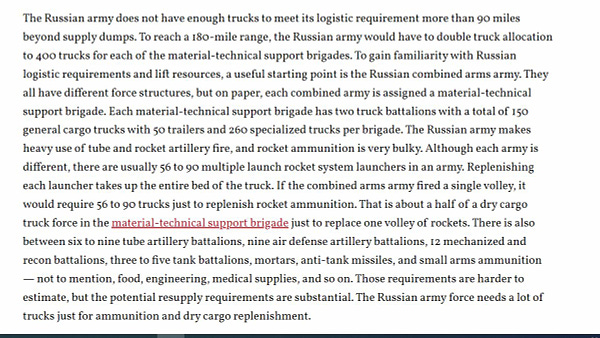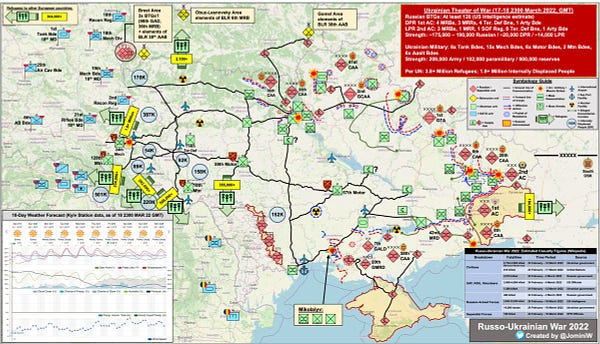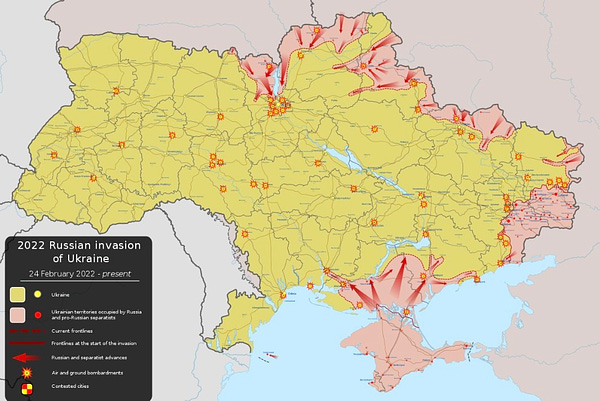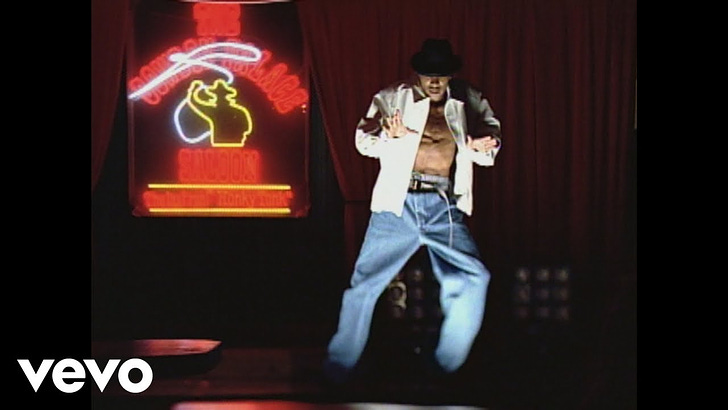Hi 👋 - Another quarter is in the books. Below are a few favorite reads and listens from the first quarter. Thanks for reading!
If you’re finding this content valuable, consider sharing it with friends or coworkers. ❤️
For more like this once a week, consider subscribing. ❤️
Podcast: Modern Classics: Mark Ronson on Ginuwine’s “Pony”, Switched on Pop
Listening to experts jam about their craft is a lot of fun. That’s exactly what this podcast is. DJ and producer Mark Ronson, musicologist Nate Sloan, and songwriter Charlie Harding dissect Ginuwine’s Pony layer by layer, looking at history, technology, and culture. The song was a paradigm shift: introducing a tempo of 60 beats per minute (BPM) - what Ronson calls a slow, sexy jam - at a time when most hip hop songs were 90-110 BPM. There’s also a good discussion of the role of happy accidents in creativity and the necessity of play and exploration for creative work.
It’s naughty enough that it feels dirty in the club but it’s PG enough that you can get it on daytime radio and kids think it’s fun to sing.
Book: Grant by Ron Chernow
Good history lets you better understand the present. This book does just that. It’s also an amazing story of a rise and fall from power. While Grant attended the prestigious US Military Academy at West Point and performed well in the Mexican-American war, he was lost after leaving the Army, struggling in business and with alcohol. At one point, Grant was forced to sell firewood on the streets of St. Louis to provide for his family. In December 1857, he pawned his gold watch to buy Christmas presents for his children. A few years later, he would be leading troops in battle in the US Civil War. While Union troops were held in check by Robert E. Lee in the East, Grant rose to prominence with success in the West. Famously, he demanded the unconditional surrender of the Confederate garrison at Vicksburg, Mississippi. The surrender gave the Union control of the Mississippi River, splitting the Confederacy in two, and propelling Grant to command the entire Union army. With superiority of men and material, his strategy was to apply maximum pressure on multiple fronts so that the Confederates couldn’t shift their forces. Over time, he began dictating the pace of the war. Perhaps because he knew failure firsthand, Grant was gracious in victory. At Appomattox Courthouse, he provided defeated Confederate soldiers with rations, let Lee keep his sword and Lee’s men keep their mules and horses so they could plant their fields, and stopped his artillery from firing a celebratory 100 gun salute. Grant’s military success raised his profile, helping him win the presidency twice. Winning the peace was more difficult than winning the war. Reconstruction and civil rights are major focuses of Grant’s presidency. The scars of the Civil War and the battles Grant fought as president are still evident today.
Americans today know little about the terrorism that engulfed the South during Grant’s presidency. It has been suppressed by a strange national amnesia. The Klan’s ruthless reign is a dark, buried chapter in American history. The Civil War is far better known than its brutal aftermath. Without knowing that history, it is easy to find fault with Grant’s tough, courageous actions. For Grant, Reconstruction amounted to a tremendous missed opportunity: “There has never been a movement since Lee surrendered that I would not have gone more than halfway to meet Southern people in a spirit of conciliation. But they never responded to it.”...Despite Grant’s best efforts at Appomattox, the breach of the Civil War never healed but became deeply embedded in American political culture.
The War in Ukraine
My media consumption drastically changed on February 24th, with Russia’s brutal and unprovoked invasion of Ukraine. Shocked and appalled, I was desperate to understand what was happening. The war is playing out in real-time online, but like all social media, the signal to noise ratio is low. Here are a few resources I’ve found helpful:
Ezra Klein’s thoughtful discussions with policy makers, academics, and journalists, on many facets of the war in Ukraine. A few suggestions: New Yorker writer Masha Gessen on Putin’s anti-modern worldview, economic historian and energy expert Daniel Yergin on how energy markets are shaping Putin’s invasion, historian Nicholas Mulder on sanctions and economic warfare.
The Global News Podcast from the BBC World Service is doing excellent reporting from Ukraine. This replaced The Daily as the way I start my mornings. As an American, it’s interesting to juxtapose how global the BBC’s coverage is versus typical US news coverage. If you want to go one layer deeper, the BBC’s Ukrainecast is a daily podcast focused exclusively on Ukraine.
Phillips Payson O’Brien is a professor of strategic studies at the University of St. Andrews in Scotland. He’s been putting out thoughtful threads on Ukraine. Here’s one on logistics and here’s an article from The Atlantic about how Western intelligence misjudged Russia’s military performance:
Having good equipment and good doctrine reveals little about how an army will perform in a war. To predict that, you must analyze not only its equipment and doctrine but also its ability to undertake complex operations, its unglamorous but crucial logistical needs and structure, and the commitment of its soldiers to fight and die in the specific war being waged. Most important, you have to think about how it will perform when a competent enemy fires back. As Mike Tyson so eloquently put it, “Everyone has a plan until they are punched in the mouth.”...To truly understand a military’s effectiveness, analysts must investigate not only how it looks on a spreadsheet but also how it may function in the chaos and pressure of a battlefield. War is an extremely difficult and complex business.


John Spencer studies urban warfare. He’s currently the Chair of Urban Warfare Studies at the Modern War Institute at West Point after serving in the US Army as an infantry soldier and commander for 25 years. His thread on urban defense went viral in later February (to the extent that something on urban defense can go viral). He’s also done a number of podcasts about the history of urban warfare and the current situation in Ukraine. Here’s Spencer discussing what the battle for Kyiv might look like, which includes historical context and case studies. Here’s Spencer on urban defense and the situation in Ukraine.

Jomini of the West, tracks the war by theater (with detailed maps), with updates every few days. Here’s an example:


Kamil Galeev’s long thread on Russia’s military capabilities. One interesting framework is maximizing efficiency versus maximizing court-politics and PR, which is applicable to business as well:
Serdyukov fought with interest groups and was destroyed. Shoygu was smarter than that. He launched a PR campaign presenting himself as the "saviour" from the Serdyukov's legacy. Whatever his predecessor did, was dismantled. Media cheered, people cheered, interest groups cheered. That's a very, very typical problem. Efficiency-maxing requires ruthlessness in dealing with established elites and interest groups. Meanwhile court-politics-maxing requires pondering to them and not making enemies. Serdyukov was maxing efficiency, Shoygu - court politics.
Galeev also has a good discussion on the tradeoffs between land power and naval power. Aircraft carriers make for great PR, but logistics win wars and its stuff like truck maintenance that matters on the ground:
Soviet naval legacy is a curse of Russian military. USSR could afford ocean fleets with carrier strike group. Russia can't. But abandoning Soviet ambitions would require suppressing their own hubris (impossible). So they strive to maintain it. Ergo: they can't and won't land-max. How does it reflect on this war? First, Russian invading force is small. It has LOTS of artillery ofc. But it's not numerous enough to win.


Michael Kofman, Director of Russia Studies at CNA, a think tank, provides good Twitter updates.
Logistics wins wars. Trent Telenko, a former quality auditor overseeing the production of US Army vehicles at contract manufacturers, on preventative maintenance and truck fleet operational attrition. Also, Telenko on the importance of tire maintenance.

War is hell. The suffering and displacement in Ukraine profound. There are many organizations doing good work in and around Ukraine. If you’re in a position to give, here are a few ideas: The International Committee of The Red Cross, The International Rescue Committee, and World Central Kitchen.
As an aside, it’s amazing what a valuable resource Twitter can be compared to what a basket case of a business it is. Value creation does not equal value. Perhaps Elon Musk changes that? Probably not.
Most Popular on Below the Line in Q1 2022
The most viewed post was Business Model Triage, a look at customer-based corporate valuation. JOKR, a breakdown of ultrafast grocery delivery start-up JOKR’s business model, got the most shares. Thank you! Lastly, Throwing Spaghetti Against The Wall, an update on Spotify’s podcast strategy, got the most new signups.
Readers sometimes ask how they can support the newsletter. If you enjoy the content and want to help support it, sharing it with friends and coworkers goes a long way. You could forward this email, share a post you enjoyed on LinkedIn, Twitter, or Facebook or with your community or company Slack channels, or click on the button below:
Thanks for reading. There’s a lot of content online and I’m grateful that you choose to spend a few minutes a week reading Below the Line. 🙏




